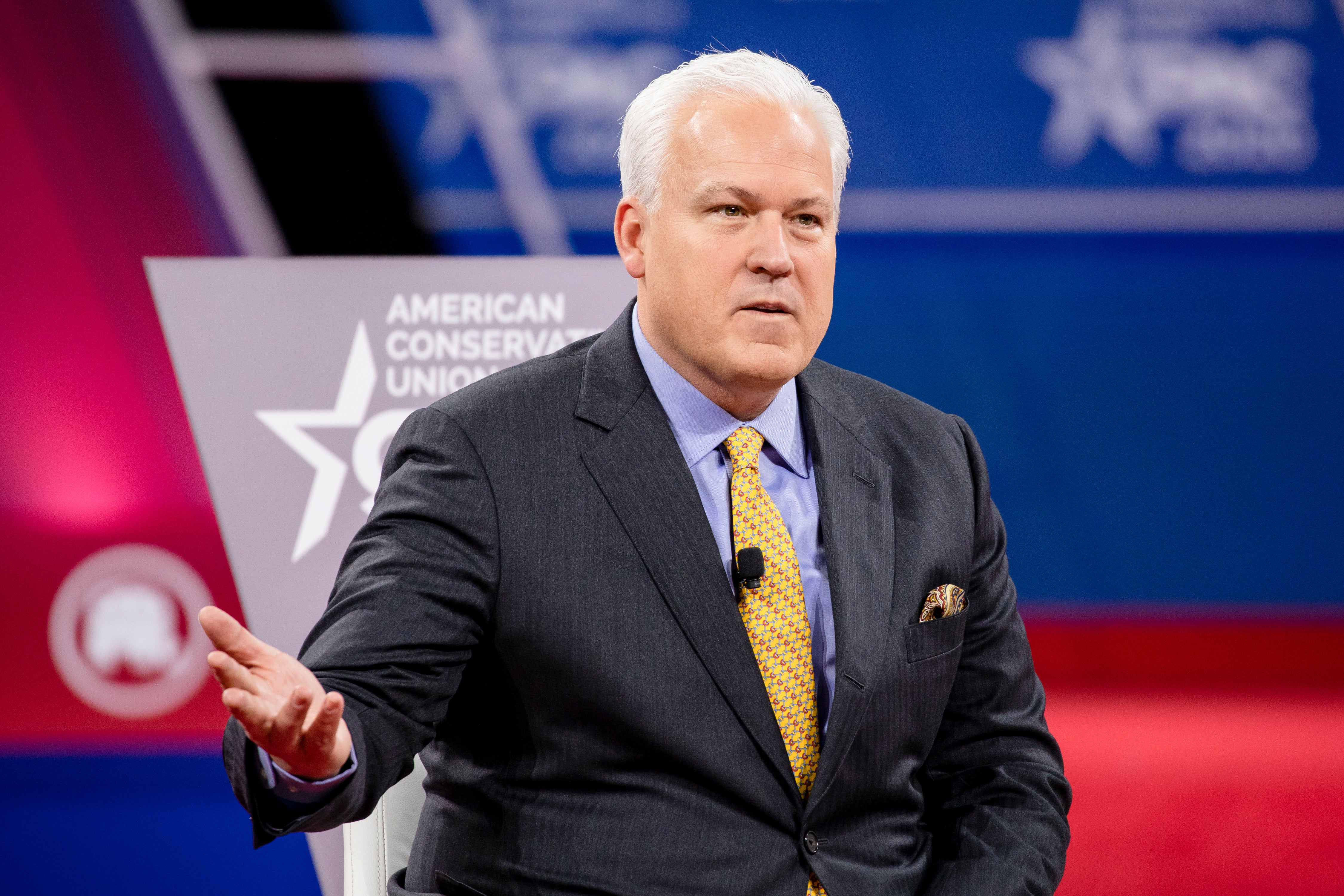CPAC: No changes to agenda of GOP conference in light of Russia invading Ukraine, chairman says
Schlapp says conference already has a sufficient foreign policy programme because of the ‘very prominent’ ex-Trump administration officials who are set to speak

American Conservative Union chairman Matt Schlapp has said there will not be any changes to the programme at the group’s annual conference as a result of Russia’s invasion of Ukraine.
In an interview just before the start of the ACU’s annual Conservative Political Action Conference on Thursday, Mr Schlapp told The Independent the conference would go on as planned.
He said the programming for the group’s yearly confab, which is organised around the theme “Awake not Woke”, already has a strong foreign policy focus, with a number of “very prominent” speakers such as former Director of National Intelligence Richard Grinnell, ex-Trump national security adviser Robert O’Brien, former Secretary of State Mike Pompeo, and other former Trump administration officials.
“That doesn't even get into the elected officials who are here,” he said, adding later that he expects “every one” of the panels featuring ex-Trump national security officials to address “what's going on with Putin and Ukraine”.
The annual four-day event’s agenda is expected to be heavy on attacks against President Joe Biden, even as the Biden administration is confronting what is certain to be the largest and bloodiest land war in Europe since the Second World War ended in 1945.
But Mr Schlapp, who served as then-president George W Bush’s White House political director from 2003-2006 and has led the ACU since 2014, said a conflict such as the one launched by Russian President Vladimir Putin was part of the “flip side” of Ronald Reagan’s “peace through strength doctrine”.
“What happens when you're not projecting strength? What happens when you're projecting confusion, a weakness? Well, you probably get a lot more conflicts like Ukraine,” he said.
He said the group’s decision to host ex-Democratic congresswoman Tulsi Gabbard at the conference’s annual Ronald Reagan dinner will be “something … people would have different opinions on” at the gathering considering Ms Gabbard’s recent claims that Nato – not Mr Putin – deserved the blame for Russia’s actions, but said his choice was to “hear her out”.
“We were one of the few groups that actually works on like criminal justice reform across the aisle. I think we can still find ways to work across the aisle, and when you have a congresswoman like Tulsi Gabbard, who's willing to be critical of her own party so publicly, I bet we can find common cause on things,” he said.
Mr Schlapp said he wants Mr Biden to succeed in his handling of the current conflict, but said the president is not currently doing enough to “rally the American people” so they support taking action to aid Ukraine’s defence against Russia.
He said Mr Biden could suffer the same fate as Mr Bush if he doesn’t justify the use of American power in Ukraine, particularly if US troops become involved – something Mr Biden has repeatedly said is not on the table.
Mr Bush, he said, “got the military involved in wars, and over time, they became incredibly unpopular – and then they became incredibly unpopular for the [Republican] party”.
“It doesn't mean that the American people are always right with what they view to be a justified military operation or not, but it's really important in a democracy, that if you're going to put troops in harm's way, that people support that.”
Mr Schlapp said that sentiment was central to the Trump-era GOP’s foreign policy outlook, which Mr Trump has dubbed “America First”, a slogan used by Nazi sympathisers and isolationists in the years leading up to the US entry into the Second World War.
But when asked if the GOP should consider jettisoning the “America First” label given recent events, he was dismissive of the idea.
“Nobody reads history anymore,” he said.
Join our commenting forum
Join thought-provoking conversations, follow other Independent readers and see their replies
Comments
Bookmark popover
Removed from bookmarks